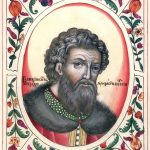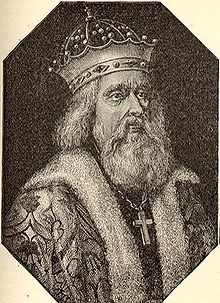
Early Life and Rise to Power
Aleksander was born in 1221 in the city of Pereyaslavl-Zalessky, which is now part of modern-day Russia. He was the son of Grand Prince Yaroslav II of Vladimir, who was a member of the powerful Rurik dynasty, which ruled over the Kievan Rus, a medieval federation of East Slavic tribes.
Aleksander grew up in a time of political turmoil and foreign invasion, as the Mongols, led by Genghis Khan, were expanding their empire across Asia and into Europe. In 1236, the Mongols invaded the Kievan Rus and destroyed many of its cities and principalities, including Vladimir, the capital of Aleksander’s father.
In the aftermath of the invasion, the Kievan Rus was left in disarray, and various princes and rulers competed for power and territory. In 1240, at the age of 19, Aleksander was appointed the prince of Novgorod, one of the largest and most important cities in the Kievan Rus.
Aleksander quickly established himself as a capable and respected leader, and he worked to strengthen Novgorod’s defenses and economy. He also formed alliances with neighboring principalities and tribes, and he fought against both the Mongols and the Teutonic Knights, a powerful order of German knights who were expanding into the Baltic region.
Battle of the Ice
One of Aleksander’s most famous battles was the Battle of the Ice, which took place in 1242 on the frozen surface of Lake Peipus, near the present-day border between Russia and Estonia. The battle was fought between the forces of Novgorod, led by Aleksander, and the Teutonic Knights, who were attempting to conquer the region and convert the local population to Christianity.
The Teutonic Knights had a superior army and weaponry, but Aleksander and his troops were able to use the slippery ice to their advantage, and they defeated the knights in a decisive victory. The battle is considered a turning point in Russian history, as it prevented the Teutonic Knights from expanding further into Russia and helped to solidify the country’s national identity.
Later Life and Canonization
After the Battle of the Ice, Aleksander continued to rule Novgorod and to defend Russia against its enemies. He also worked to promote peace and unity among the various Russian principalities and tribes, and he was recognized as a national hero and a symbol of Russian patriotism.
In 1252, however, Aleksander’s father, Grand Prince Yaroslav II, died, and a power struggle ensued between Aleksander and his younger brother, Andrei. Aleksander ultimately emerged victorious and was appointed the grand prince of Vladimir, the highest title in the Kievan Rus.
As grand prince, Aleksander continued to work for the good of the Russian people, and he oversaw the construction of several important churches and monasteries. He also strengthened Russia’s relationship with the Mongols, who were now the dominant power in the region, and he was able to maintain a level of autonomy for Russia within the Mongol Empire.
Aleksander died in 1263 at the age of 42, and he was buried in the Dormition Cathedral in Vladimir. He was later canonized by the Russian Orthodox Church



















Add Comment